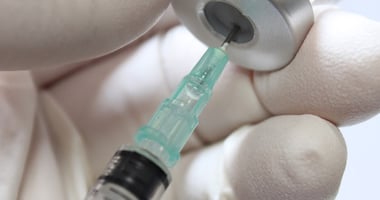Patients with a recent first episode of schizophrenia who are treated with a long-acting injectable...
Weekly Pill May Replace Daily Medications for Patients With Schizophrenia
A single, long-acting oral capsule can provide patients with schizophrenia or schizoaffective disorder with a stable dose of medication for one week, according to findings of an open-label study from Lyndra Therapeutics published yesterday in Lancet Psychiatry.
“One of the biggest obstacles in the care of people with chronic illnesses in general is that medications are not taken consistently. This leads to worsening symptoms, and in the case of schizophrenia, potential relapse and hospitalization,” study co-author Leslie Citrome, M.D., M.P.H., of New York Medical College, said in a news release. “Having the option to take medication by mouth once a week represents an important option that can assist with adherence for the many patients who would prefer oral medications versus injectable formulations.”
Citrome and colleagues recruited 83 patients with schizophrenia or schizoaffective disorder from five sites across the United States (25% female, average age 49 years, 81% Black or African American). Before starting the open-label study, participants were given daily, immediate-release risperidone (an antipsychotic) for one week. They then received five of the Lyndra Therapeutics devices, each loaded with a weekly dose of risperidone—either 15 mg or 45 mg.
The device—composed of various polymers—has six arms that are folded inside a capsule about the size of a multivitamin. Once it reaches the stomach, the capsule dissolves and the arms spring out. The device is then too large to exit the stomach, so it remains freely floating and slowly releases risperidone. After about a week, the arms break off and the device remnants pass through the digestive tract.
The participants had risperidone levels at or above the minimum therapeutic concentration across the five-week dosing period relative to corresponding daily dose, and well below the peak concentrations of immediate-release risperidone. This suggests stable drug delivery that may reduce the risk of extrapyramidal side effects, the authors wrote. Similarly, participants’ symptoms remained stable throughout the study period, as assessed with the Positive and Negative Syndrome Scale.
There were some gastrointestinal-related adverse events (such as reflux or constipation) during the first week in which participants took the device, but those decreased over time. Females were more likely to report gastrointestinal-related adverse events than males.
“This really demonstrates … what we had hypothesized a decade ago, which is that a single capsule providing a drug depot within the GI tract could be possible,” study co-author Giovanni Traverso, Ph.D., of the Massachusetts Institute of Technology, said in the news release.
For related information, see the Psychiatric News article “Studies Point to Benefits of Early Treatment With Long-Acting Antipsychotics.”
(Image: Adam Glanzman)
Don't miss out! To learn about newly posted articles in Psychiatric News, please sign up here.





